Management Theories Timeline and Relevance in Emerging Economies
VerifiedAdded on 2023/06/05
|11
|538
|452
Presentation
AI Summary
This presentation provides a comprehensive overview of the evolution of management theories, tracing their development from the early stages of the industrial revolution to contemporary practices. It explores key milestones, including the introduction of time-work theory, Taylorism, the Hawthorne studies, and the development of theories such as Theory X & Y and business process management. The presentation analyzes the relevance of these theories in the context of the emerging economy, highlighting the enduring influence of Taylorism and Weber's bureaucracy theory while emphasizing the increasing importance of employee empowerment. It discusses the shift from rigid, traditional approaches to more flexible, employee-centric management styles, reflecting the changing dynamics of the modern workplace. The presentation concludes by emphasizing the continued relevance of traditional management theories, albeit with adaptations to suit the evolving needs of the global economy.
1 out of 11
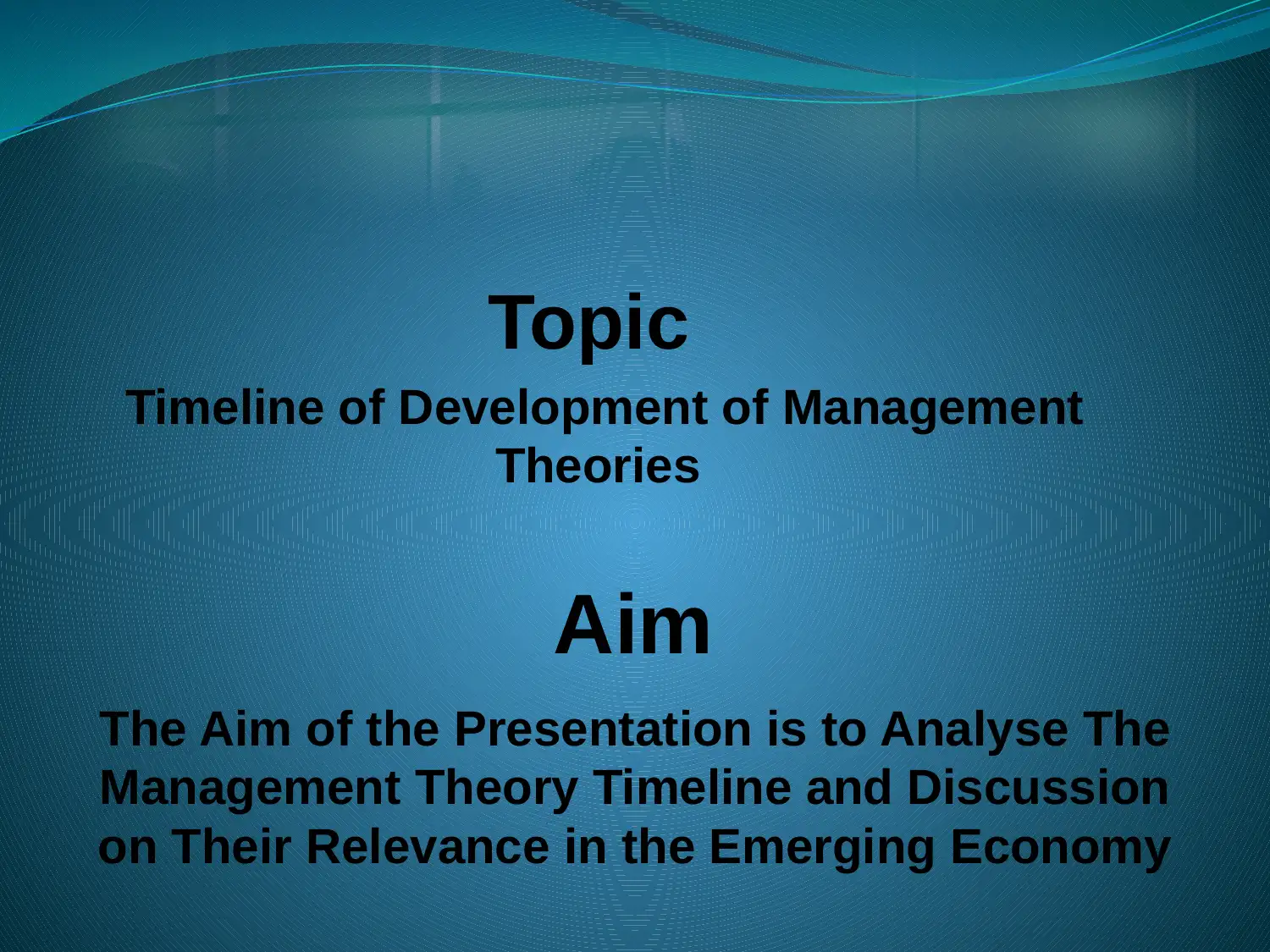
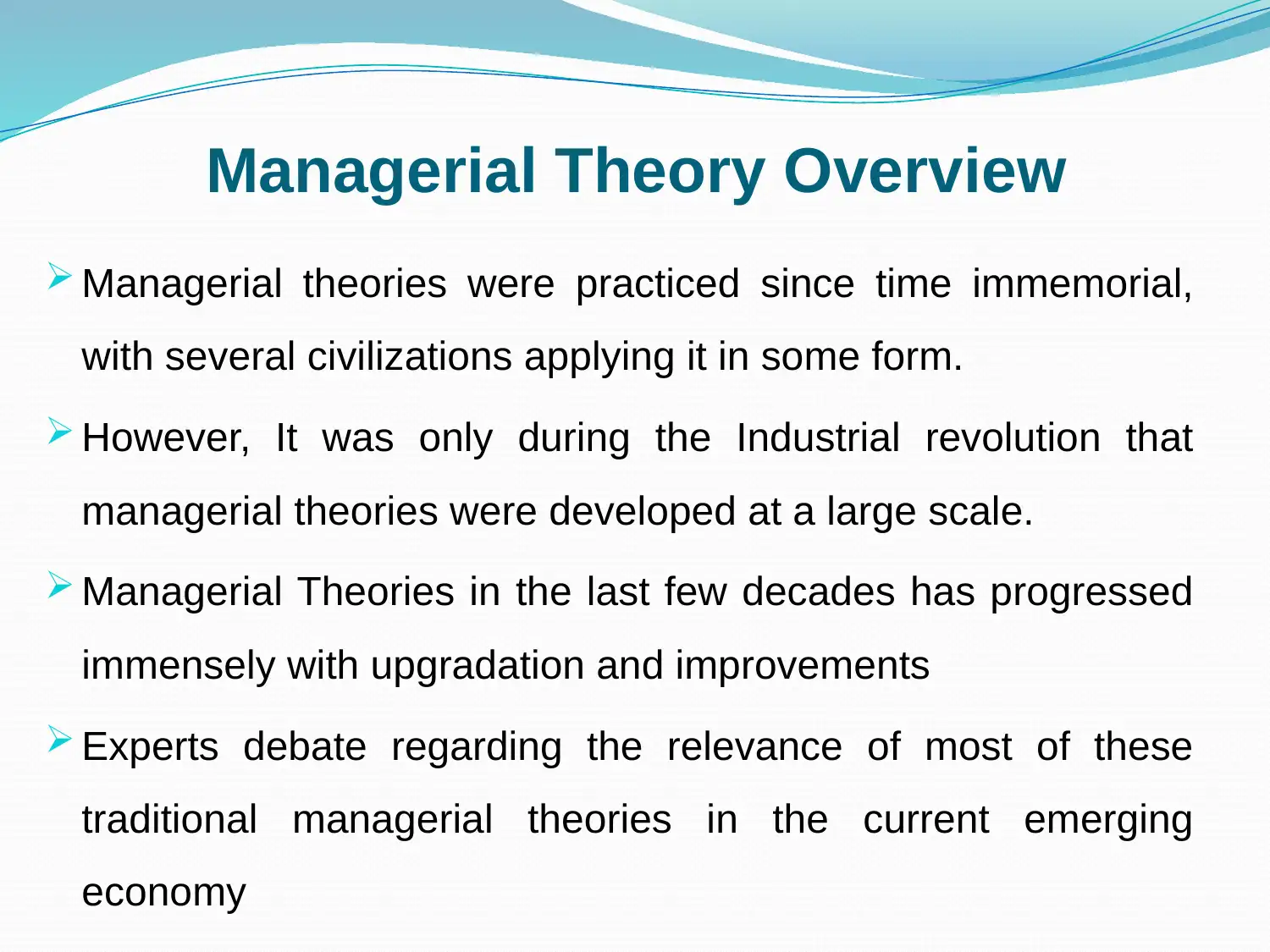
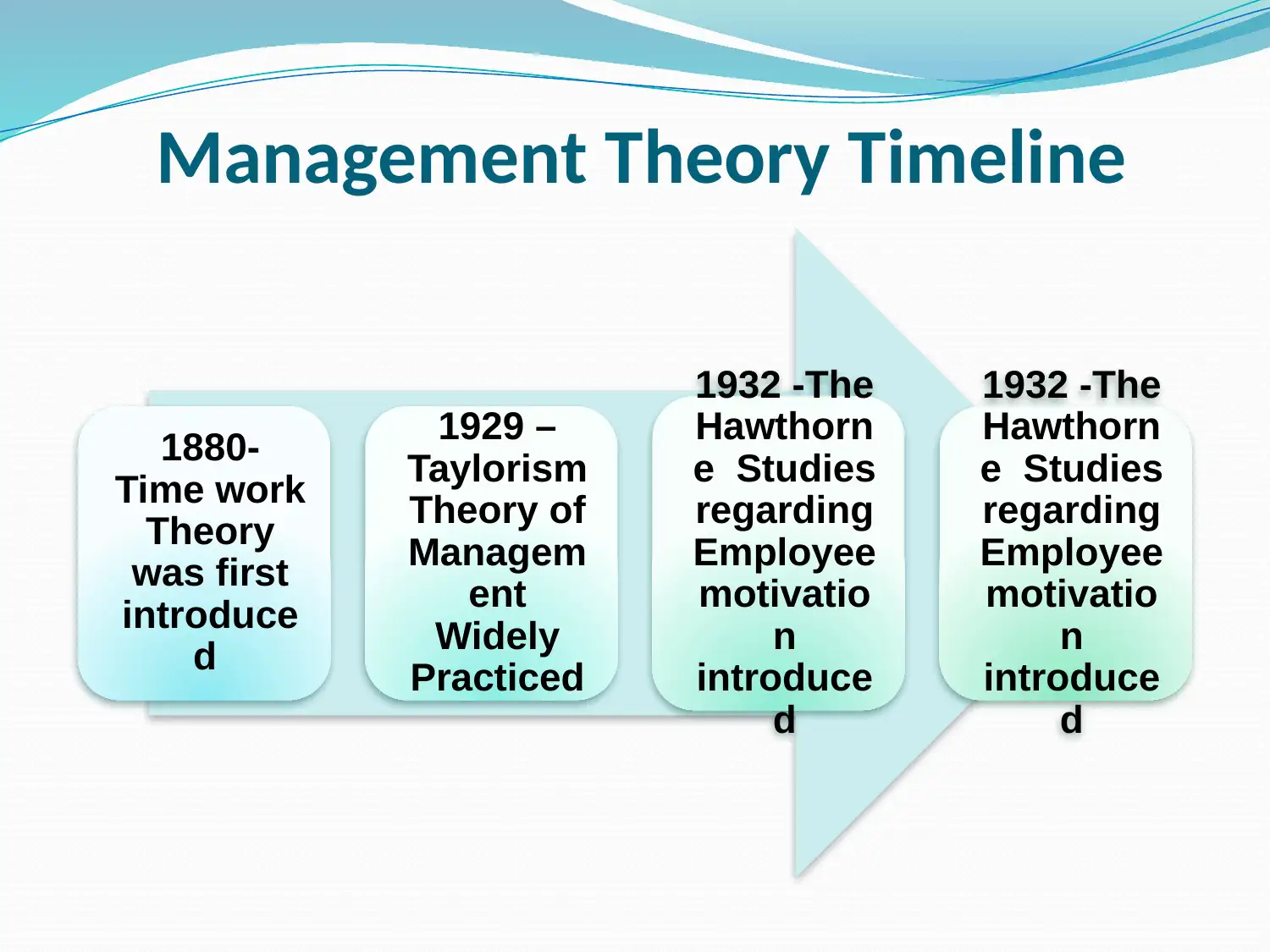

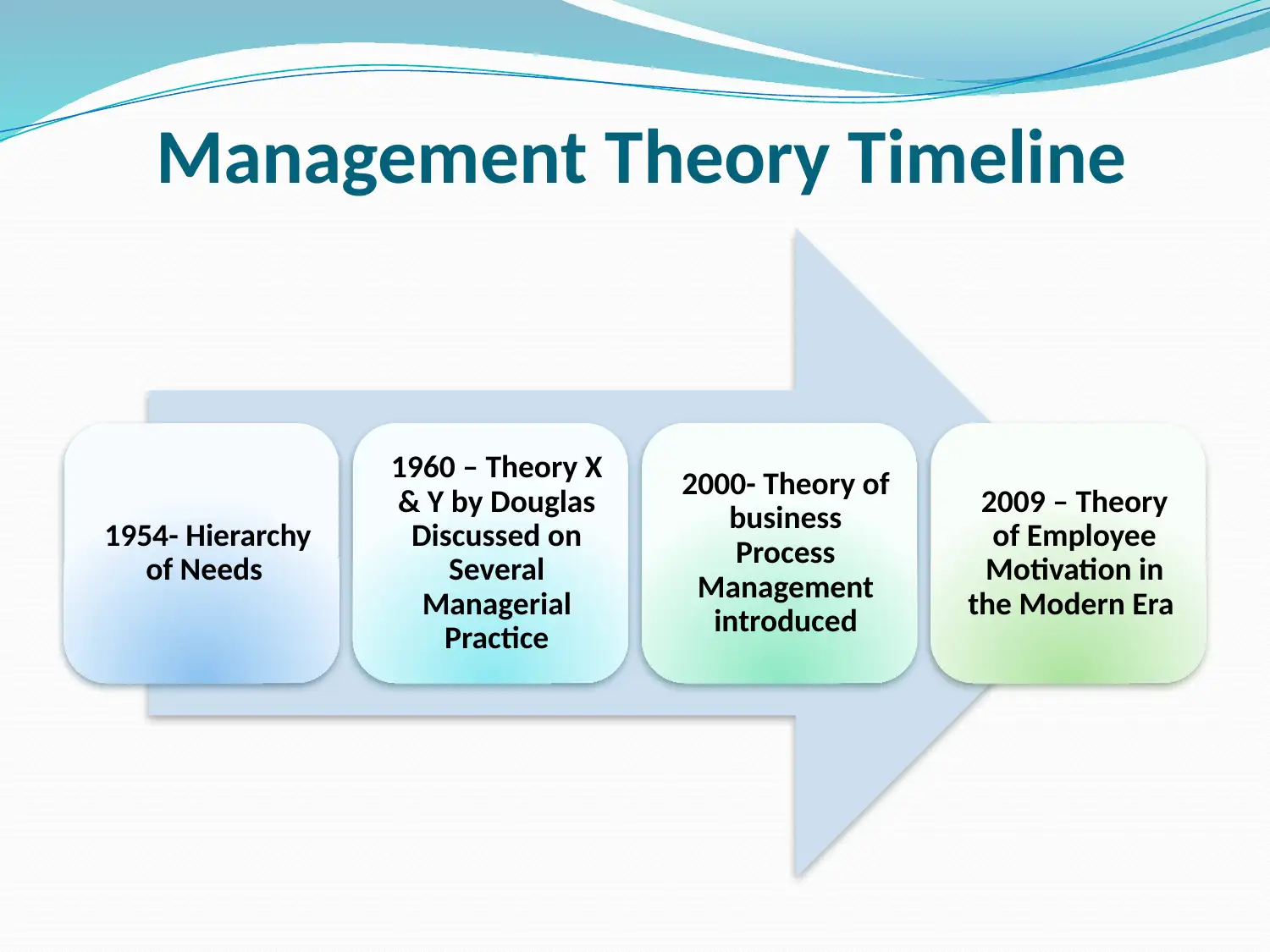
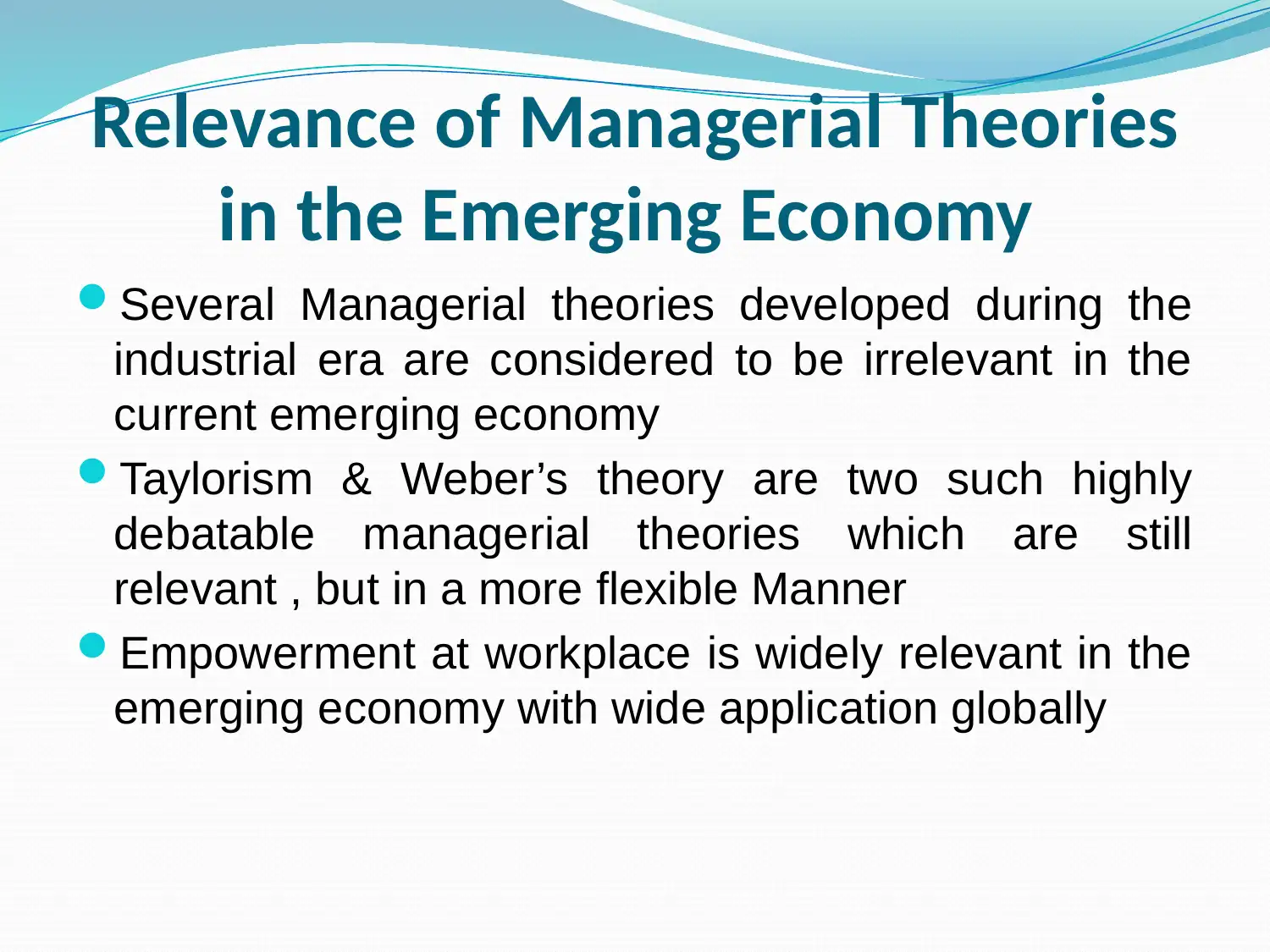
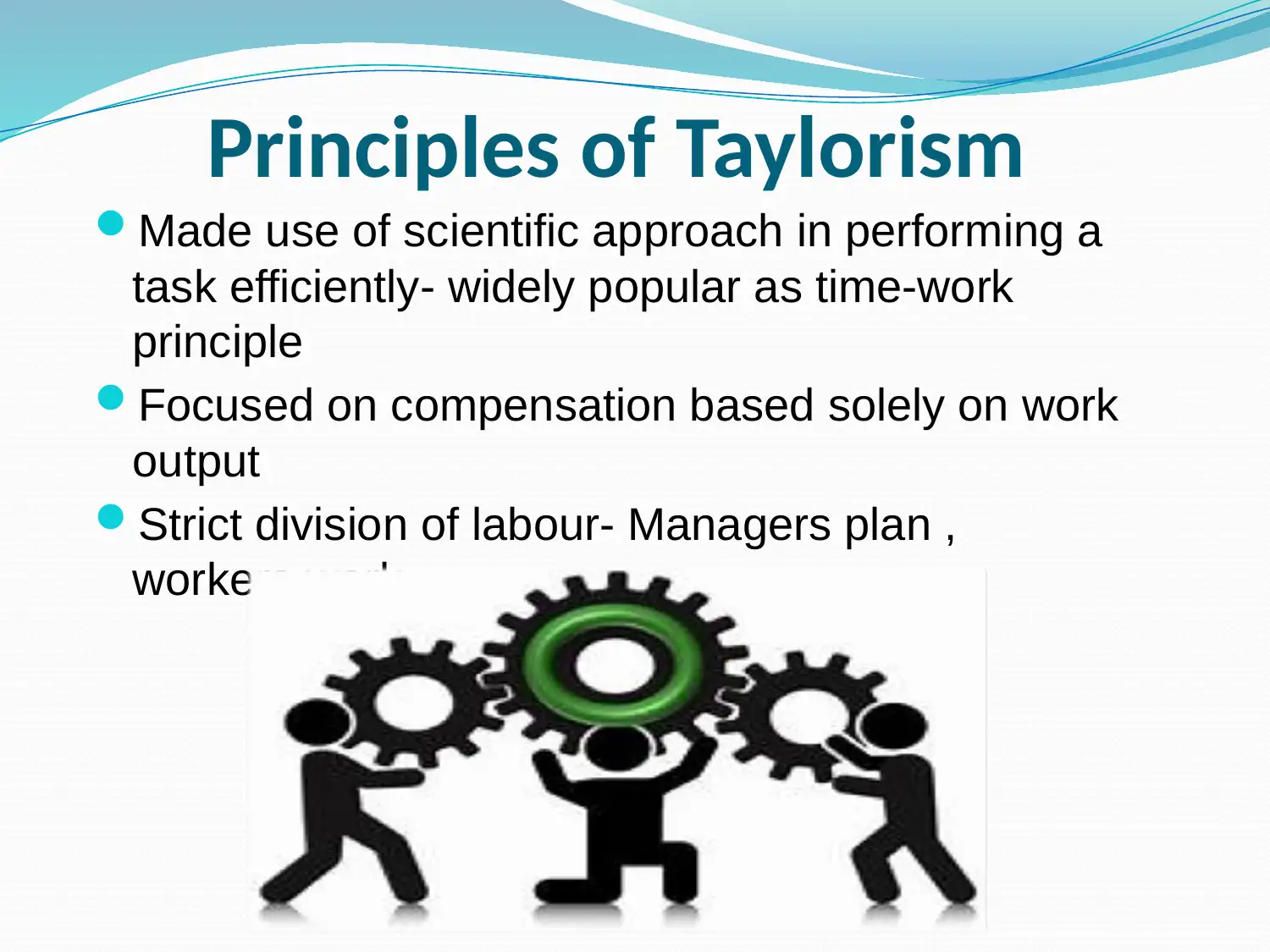
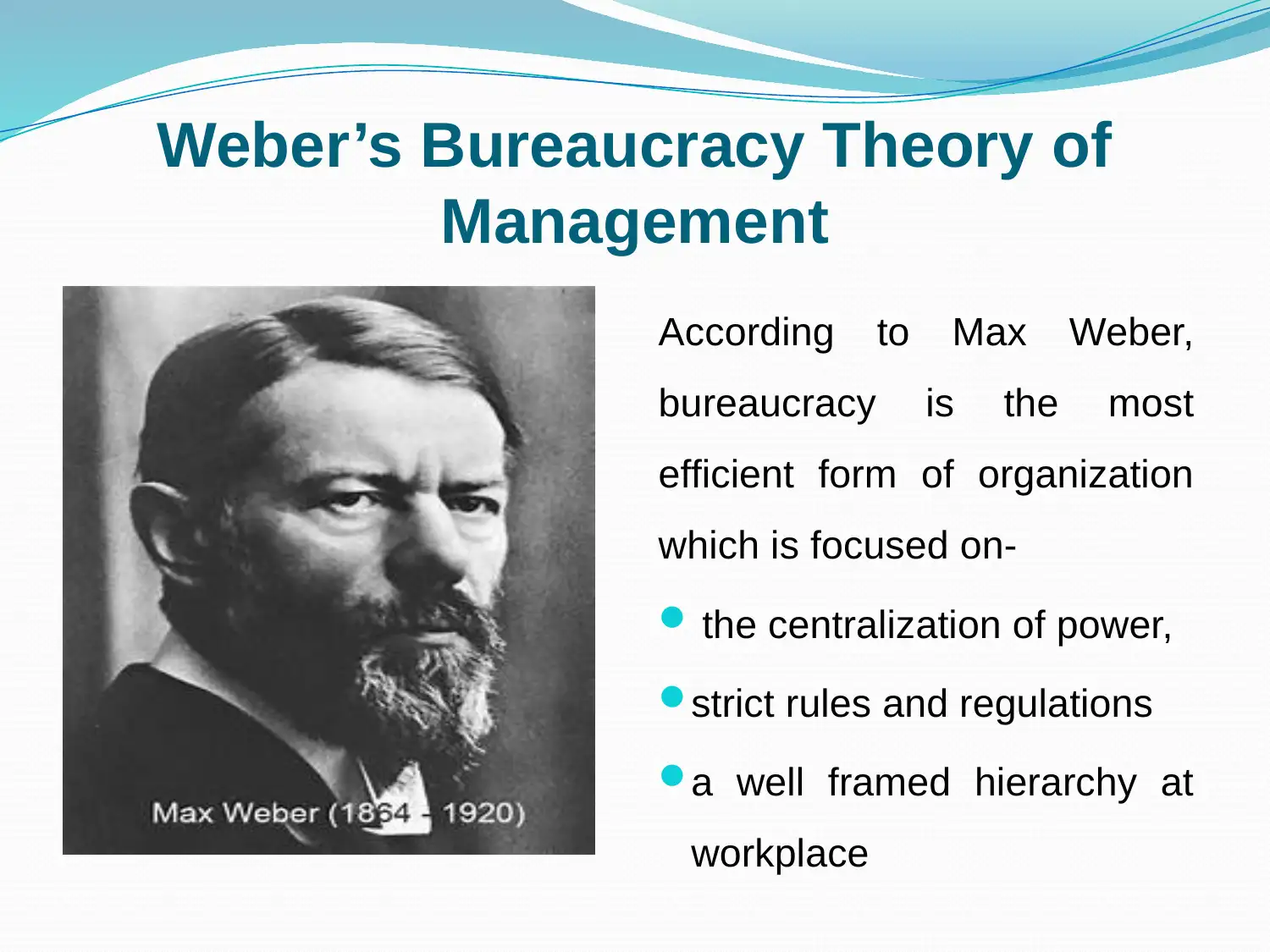
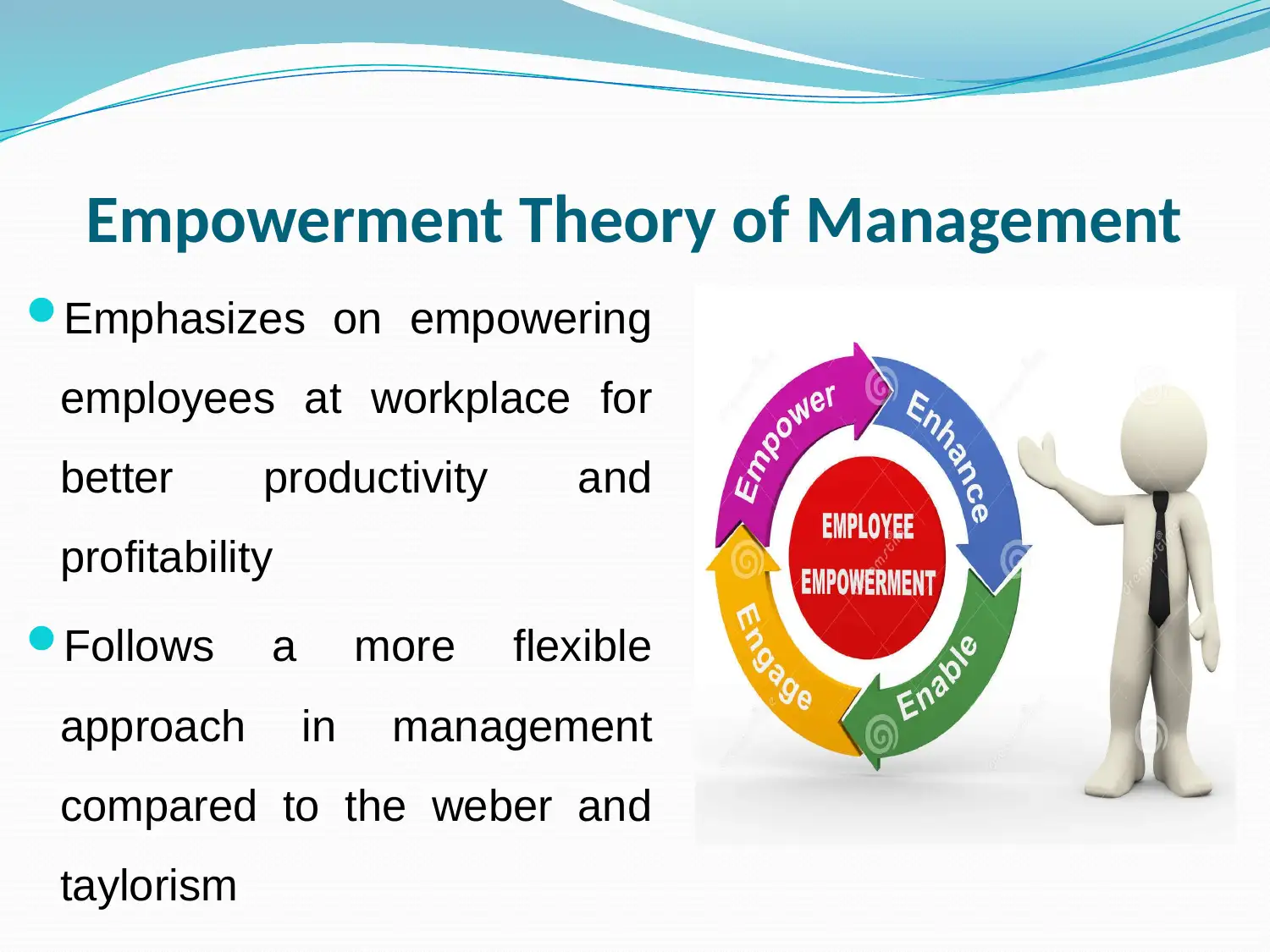
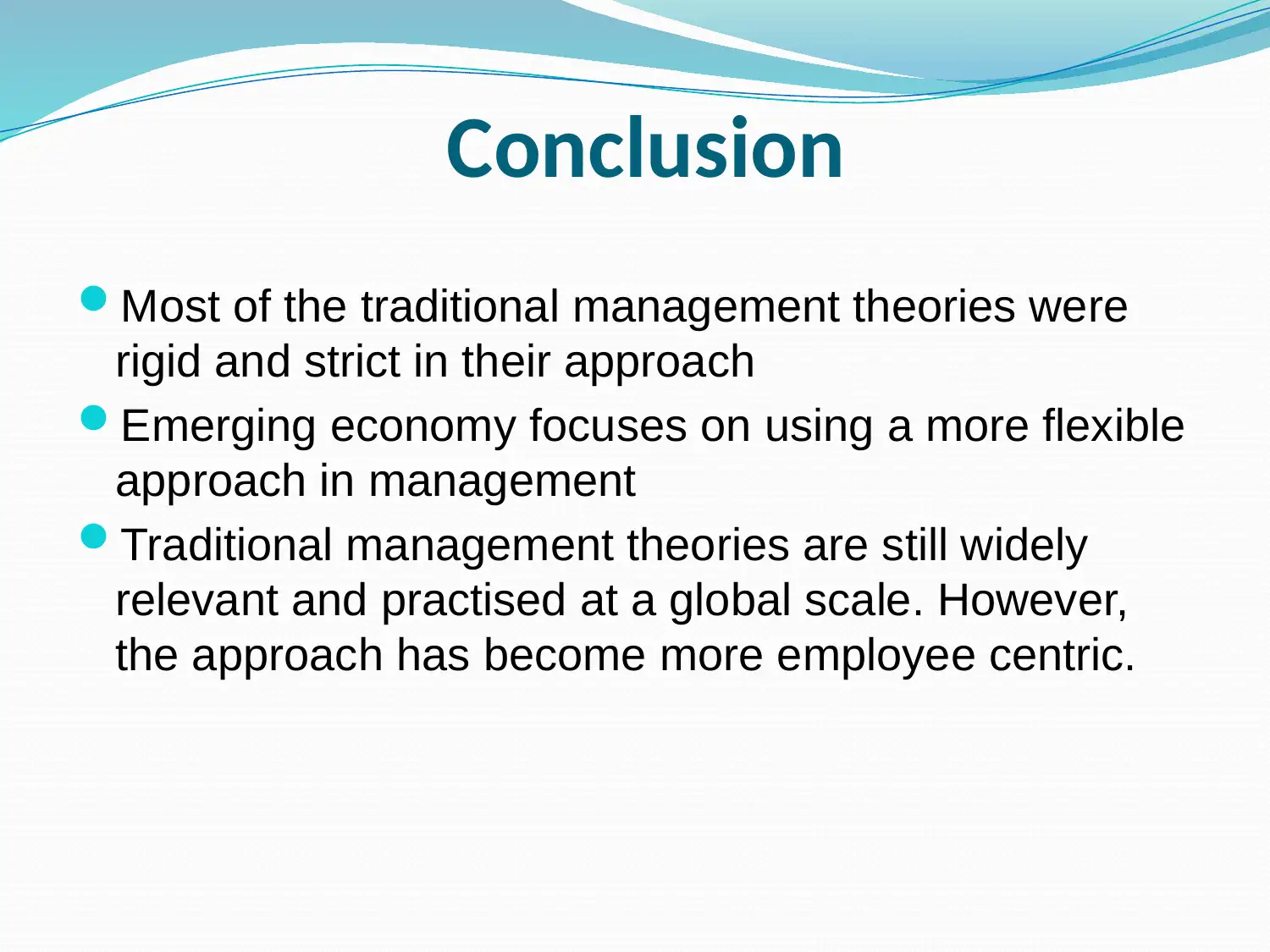
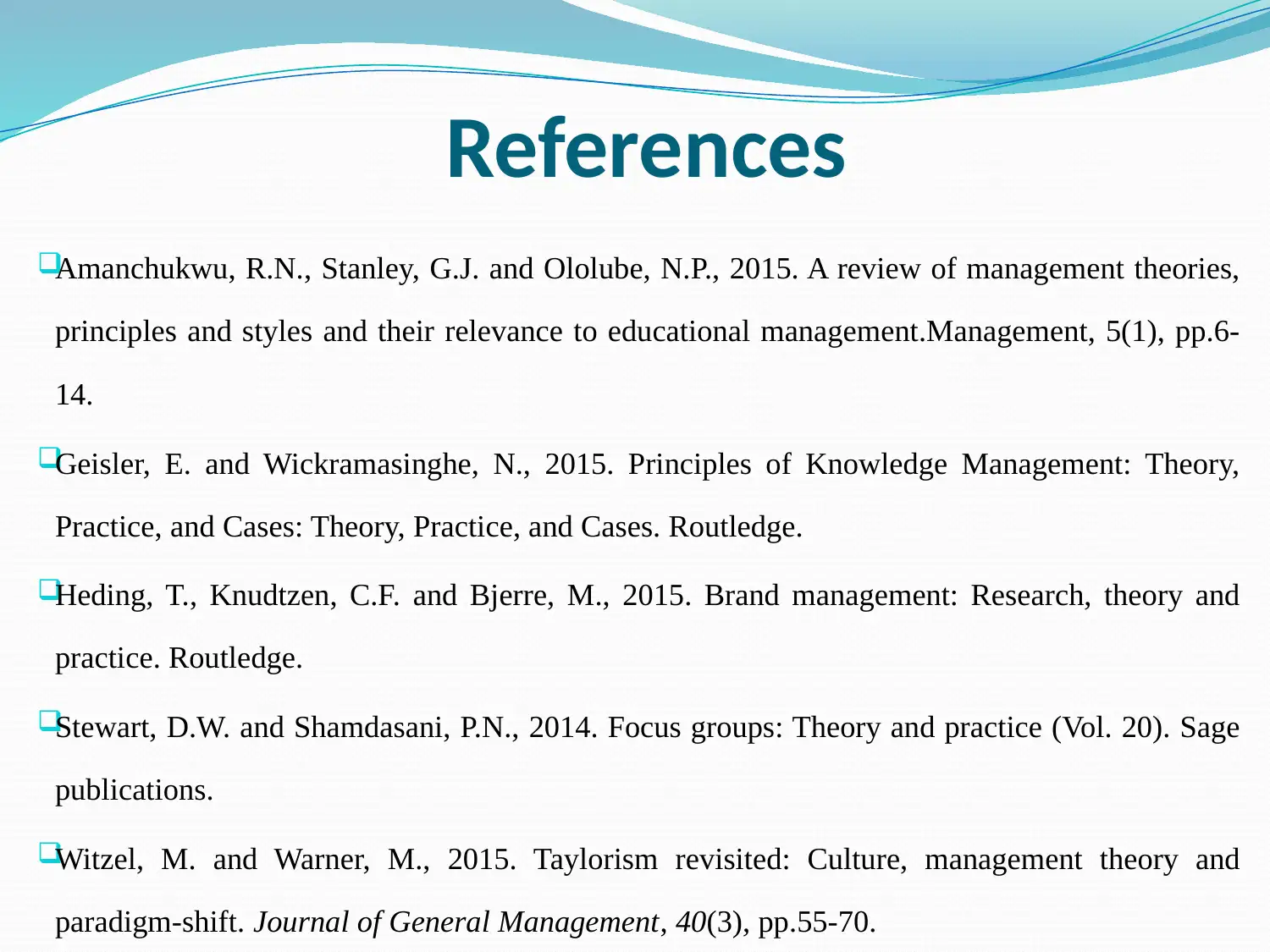


![[object Object]](/_next/static/media/star-bottom.7253800d.svg)